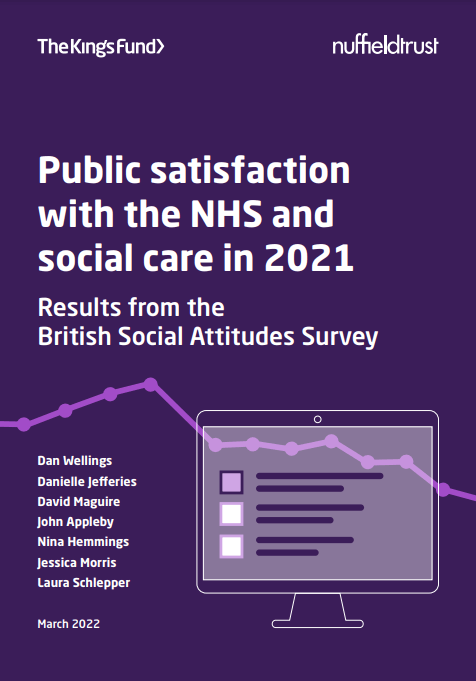 by Sue Brown, CEO ARMA
by Sue Brown, CEO ARMA
The King’s Fund has just published the results of the British Social Attitudes Survey (BSAR) questions on satisfaction with the NHS. Satisfaction has dropped by 17 percentage points since last year’s survey, with more people now being dissatisfied than satisfied with the NHS. The main reasons are waiting times (for GPs and hospital appointments), staff shortages and that the government does not spend enough money on the NHS. No one with any connection to health services will be surprised by any of this.
The survey asked about satisfaction with different services, including GPs, A&E, inpatient care, outpatients, and dentistry. There is one area of NHS provision which is missing, and in MSK arguably the most important – community services. The vast majority of those with an MSK condition will not need hospital treatment. Even those who do, need community MSK services too.
 Community services are key to supporting people at an early stage and enabling self-management of long term MSK conditions. If community MSK services were planned and used more effectively they could help reduce the pressure on secondary care services. Unfortunately, too often community MSK services are seen as a lower priority. They are the ones that can be cut, can be last in line for restoration of services, where a skilled workforce can be redeployed to help out other bits of the NHS in crisis. Because it’s just a bit of MSK pain; it won’t kill you. MSK is the leading cause of years lived with disability – it matters.
Community services are key to supporting people at an early stage and enabling self-management of long term MSK conditions. If community MSK services were planned and used more effectively they could help reduce the pressure on secondary care services. Unfortunately, too often community MSK services are seen as a lower priority. They are the ones that can be cut, can be last in line for restoration of services, where a skilled workforce can be redeployed to help out other bits of the NHS in crisis. Because it’s just a bit of MSK pain; it won’t kill you. MSK is the leading cause of years lived with disability – it matters.
Which is why I am pleased the that BestMSK Health programme in NHS England has now published a toolkit for primary and community MSK services. It sets out the principles behind excellent community MSK services, including the digital opportunities and the breadth of workforce that exists to make this a reality (yes, there is more to community MSK than physiotherapy). I’ve been pleased to be involved in the development of this toolkit and to see an expanded version of ARMA’s ‘What Professions Do’ document included in the workforce section. It’s great to have a recognition of just how wide the support available in primary and community services can be. The role of voluntary sector, social prescribing, health coaching and self-management runs throughout.
The BSAR survey showed that people are still committed to the principles of the NHS. There was overwhelming support for a service that is free at point of use, tax funded, available to all. We can’t deliver that without thinking differently about every aspect of NHS services. We can’t deliver that if we don’t make community services a priority.
A toolkit is of no use unless it is used. I’m hoping that all over England (and beyond, since the structures may be different, but the same principles apply) the toolkit will be picked up and used to transform community services. If you understand the vital importance of community MSK services, please take the toolkit, use it, promote it, talk about it. Let’s see it make a difference so that in future everyone understands the huge contribution that community services can make and no one thinks they are low priority.

